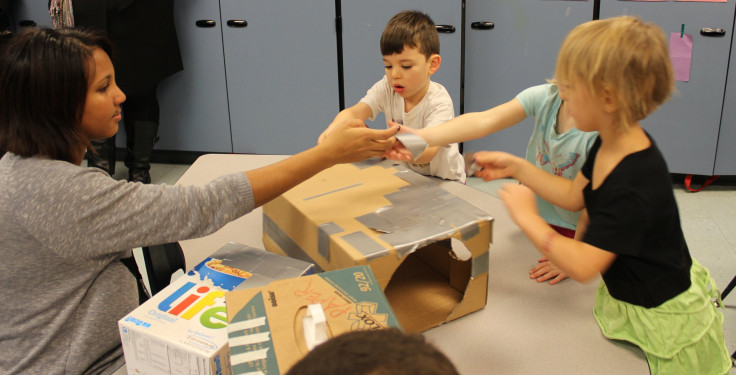Preschoolers With Poor Working Memory More At Risk Of Dropping Out Of School

A preschooler’s grasp of working memory may serve as an indicator for their future success in school, a new study published Tuesday in Intelligence suggests.
The researchers, analyzing 1,824 children who had previously participated in a long-term study of child development, found that there was a significant relationship between these children’s working memory capacity at around age 3 and their later risk of becoming a high school dropout, even after accounting for other factors like verbal and non-verbal IQ, socioeconomic status, and sex.
This risk was evaluated via a scale that took several different variables of the children’s academic performance at age 13 into account. "Dropout risk is calculated from student engagement in school, their grade point average, and whether or not they previously repeated a year in school. Previous research has confirmed that this scale can successfully identify which 12 year olds will fail to complete high school by the age of 21," said lead author Dr. Caroline Fitzpatrick, a member of the Humanities department at Université Sainte-Anne, in a statement.
Working memory, though sometimes confused for the broader label of short-term memory, is defined as someone’s ability to retain, remember, and process small chunks of information in order to complete a brief activity. An apt application of working memory would be jotting down a phone number as it’s being given to you or calculating a relatively simple math problem without a pad and pencil.
The children’s childhood working memory skills was determined via their performance on the Imitation Sorting Task, a test explicitly designed for very young children. In the task, children are first asked to watch differently-shaped objects being placed into two containers, then they’re told to repeat the same pattern by themselves. Even an one-point increase in “children's working memory skills predicted a 26 percent reduction in the odds of being in the high risk group for dropout,” the authors found. Higher socioeconomic status and intellectual skills predicted lower high school dropout risk as well.
Our working memory, especially in the young, is known to be a key component of developing cognitive control, or the executive functions that regulate problem-solving and task management, among other important skills.
"A child with inadequate working memory might experience difficulty completing tasks in the face of distractors, following sequential instructions, and keeping track of time in order to finish their work in a timely fashion," Fitzpatrick said. "Poor self-control more generally is likely to result in disorganized living spaces, such as their room, desk, or locker. Providing parents, teachers, and support staff with basic training on cognitive control and working memory may be advantageous for at-risk children."
These training interventions can amount to fostering more pretend play among preschool aged children to encouraging athletic activities in older children, particularly martial arts. "Traditional martial arts that place an important focus on respect, self-discipline, and humility have been shown to help children, especially boys, build strong cognitive control and working memory skills," Fitzpatrick explained. "Another promising strategy for improving working memory in children is to limit screen time — video games, smartphones, tablets, and television — which can undermine cognitive control and take time away from more enriching pursuits."
While an earlier study of theirs concluded that preschool working memory predicts academic competence and classroom engagement in kindergarten, Fitzpatrick and her colleagues cautioned that more research needs to be conducted before the connection between early working memory and academic success throughout childhood can be definitively established.
Source: Fitzpatrick C, Archambault I, Janosz M, et al. Early childhood working memory forecasts high school dropout risk. Intelligence. 2015.
Published by Medicaldaily.com



























